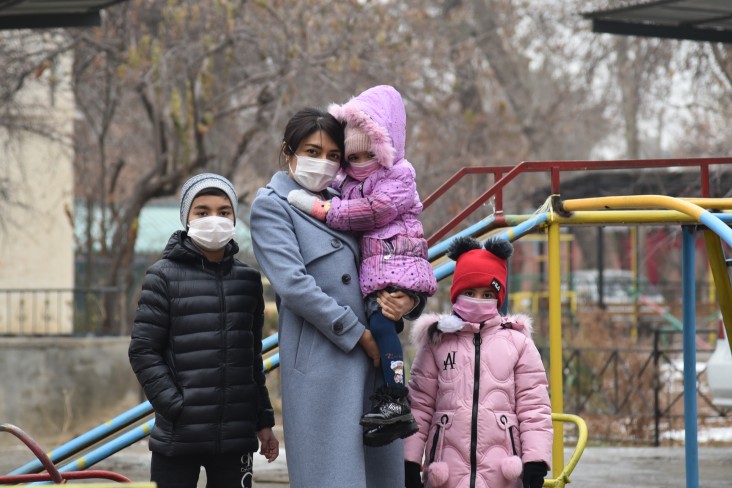Speeches Shim

Life was busy to say the least for Malika, an English teacher at a university in Tashkent and the mother of three children ages 10, 7, and 3. Then the pandemic hit, leaving everyone locked at home indefinitely. The whole world had slowed down, except for the deadly virus that was spreading rapidly.
“It felt like we were put in a tunnel without a light at the end,” Malika recalls. “With everyone glued to the news about COVID-19, and how it affects people of all ages, I was worried about the health and safety of my children.”
For more than two months Malika’s children stayed at home. Adjusting to the new “normal” wasn’t easy. “COVID-19 has changed many habits in our home including our daily routine – no more swimming classes, no playing outdoors or visits to grandparents,” she says.
The schools in the city including her university also switched to online classes. In addition to conducting online classes, Malika taught her children how social distancing, wearing masks, and keeping hands clean can prevent the virus from spreading. “Wash your hands, please! Children get bored easily and tend to forget its importance to maintain good hygiene. With the lockdown lifted and communities reopening, it had become even more critical in our family,” she stresses.
In August, just before the schools reopened virtually in Uzbekistan, Malika’s children came across Sesame Street’s Elmo’s handwashing song while watching YouTube. Already a big fan of Elmo’s hit toothbrushing “Brushy Brush,” 7-year-old Zinnura and 3-year-old Zarifa immediately picked up the “Washy Wash” sing along. “Not only do they watch and sing, the girls also imitate the handwashing by repeating Elmo’s actions,” says Malika, smiling.
Regular and thorough handwashing is now a part of their daily lives. Several times a day her children remind each other to wash their hands like Elmo does. Malika’s family is one of seven million households in Uzbekistan, who benefited from the campaign, launched by USAID in partnership with Uzbekistan’s Ministry of Public Education.
To help children better understand COVID-19, USAID and the Ministry of Education partnered with Sesame Workshop, the non-profit educational organization behind Sesame Street, to produce the Caring for Each Other media package.
The package, adapted for Uzbek audiences both in English and Uzbek languages, consists of 11 videos about proper handwashing, sneezing, coping with illness, stress, and adjusting to a new reality. Since September, the videos have been broadcast on national TV and disseminated on the Ministry’s online educational platforms and social media channels with a “Learn English with Sesame Street” theme.
In addition, posters, billboards, coloring and activity sheets that accompany the package, were shared with schools and retraining centers across the country. By partnering with Sesame Workshop, USAID has provided children and families in Uzbekistan with resources to learn and play together during the health crisis.
According to a survey conducted by the Ministry of Public Education, more than 75 percent of parents found the videos to be extremely useful for children, while 69 percent reported that printed materials provided their children new information about hygiene during the pandemic.
“The colorful and engaging videos with their favorite characters like Elmo and Abby not only help them reinforce good hygiene habits at home, but also address challenges such as worrying about a sick parent, social distancing, and parents returning to work,” Malika states.
Now every time when the doorbell rings, Malika’s 3-year-old daughter runs to the door with a sanitation spray. “She doesn’t know how to read yet. But she knows that taking care of others is also taking care of yourself,” says her mother.

Comment
Make a general inquiry or suggest an improvement.